Alexandre Bontemps, Valet and Special Agent
Born on 9 June in 1626 in Paris, Alexandre Bontemps rose to be one of the most powerful men at the court of Louis XIV.
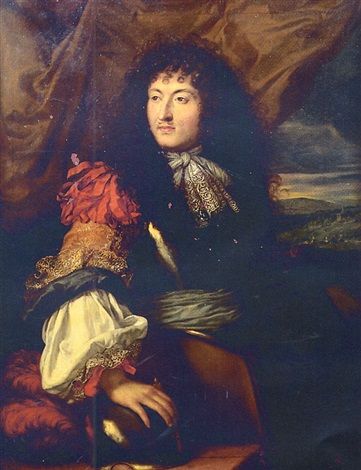
His father, Jean-Baptiste Bontemps, was originally from Marseille and was made first surgeon to Louis XIII in 1633 and in 1643, he became premier valet de chambre ordinaire by lettres patentes. Louis XIII died a month later.
Jean-Baptiste married Marguerite Le Roux, the daughter of a Parisian merchant. Their son Alexandre was baptised on 17 July 17 in 1628, with César de Bourbon, illegitimate son of Henri IV, and Élisabeth de Bourbon, a granddaughter of Henri IV, acting as his godparents.
In 1642, aged sixteen, Alexandre was appointed Abbé Commendataire de l’abbaye Notre-Dame d’Hyverneaux in Paris. A Abbé Commendataire, Commendatory Abbot, is an Abbot with the right to hold church property, but without ‘the care for souls’. Those Abbots may marry with the permission of the Pope. (The Chevalier de Lorraine was one too.)
In 1650, the Bontemps family rose to the rank of nobility by lettres patentes and Alexandre took over the office of his father on 14 April in 1652. His new master, Louis XIV, was fourteen years old and had been officially declared to be of age the previous year. Alexandre seemed to have enjoyed his new life at court and even danced in several ballets between 1643 and 1664, some of those composed by Jean-Baptiste Lully. Unfortunately for Alexandre, the papers that ennobled his family were declared invalid in 1664, but it did not take long until the family was ennobled once more. Alexandre had grown rather dear to Louis XIV and proved himself to be very worthy of the position he inherited from his father.
In 1665, as Versailles became Louis XIV’s favourite place on earth, the Governorships of Versailles and Marly were given to Alexandre. (Those were held by Jérôme Blouin until his death in 1665 and according to some sources they were meant to go to his son. This son was a mere five years old and thus unable to perform his duties. One version states they were given to Alexandre until the son came of age, a other that they were given to Alexandre and he was meant to hold them completely, in case he should die, and the son was old enough, they were then to go to the son of Jérôme Blouin. That is what happened in the end.)
By the time Alexandre took over these Governorships, he was already a close confidant to Louis XIV. Alexandre managed his household, was always by his side, slept on a sort of camping bed in the King’s bedroom as it was his duty, advised him without directly seeking influence or power for himself. In 1673, Alexandre rose to another important position. Until then, Eugène-Maurice de Savoie, Comte de Soissons, held the position of Colonel-General of the Swiss and Grisons, but the Comte died suddenly under slightly mysterious circumstances. He was in Westphalia as a sudden fever caused his demise, but rumours had it he was poisoned by his wife. Louis-Auguste de Bourbon, Duc du Maine and favourite legitimised son of Louis XIV, was appointed as the new Colonel-General, but the Duc de Maine was only three years old then. Thus the Sun King gave the executive rights of the office to his trusted valet Alexandre Bontemps.
This made Alexandre one of the most powerful men at court. Now he was not only just taking care of the King’s household, he was responsible for his security as well, and even more important in the eyes of the courtiers, Alexandre was the man who was the closest to the King. From dawn to nightfall and even during the night. This put Alexandre at a very special place in the courtly ranks, a place were nobody wanted to upset the King’s valet even the slightest, after all Monsieur Bontemps could tell on them when he was alone with the King and that was pretty often the case.
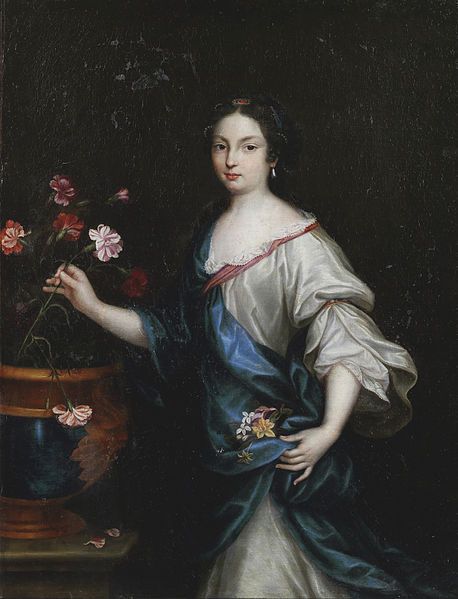 The trust Louis XIV had in his valet seems quite endless. It was Bontemps who got charged with secret missions, some even concerning the royal offspring. In case of Louise de Maisonblanche, daughter of Louis XIV and Madame de Montespan’s best friend Claude de Vin des Œillets, Bontemps made sure the girl received an education. He later even secured a dowry of 40,000 livres along with silver and jewels for her, as she married a certain Bernard de Prez. (He was later made a gardes du corps to Louis XIV.) Louis XIV was never too sure Louise de Maisonblanche was actually his child and her mother had in vain tried to get the King to acknowledge her as his child. It might have been Bontemps as well who managed to change the King’s mind, for Louise de Maisonblanche was later allowed to style herself fille naturelle du Roi. In case of the Black Nun of Moret, Alexandre is also rumoured to have been involved, although nobody can say for sure if the whole story is true or just rumours, most likely the latter.
The trust Louis XIV had in his valet seems quite endless. It was Bontemps who got charged with secret missions, some even concerning the royal offspring. In case of Louise de Maisonblanche, daughter of Louis XIV and Madame de Montespan’s best friend Claude de Vin des Œillets, Bontemps made sure the girl received an education. He later even secured a dowry of 40,000 livres along with silver and jewels for her, as she married a certain Bernard de Prez. (He was later made a gardes du corps to Louis XIV.) Louis XIV was never too sure Louise de Maisonblanche was actually his child and her mother had in vain tried to get the King to acknowledge her as his child. It might have been Bontemps as well who managed to change the King’s mind, for Louise de Maisonblanche was later allowed to style herself fille naturelle du Roi. In case of the Black Nun of Moret, Alexandre is also rumoured to have been involved, although nobody can say for sure if the whole story is true or just rumours, most likely the latter.
The life of Alexandre Bontemps circled fully around the Sun (King). Unlike others, he is said to never have asked favours for himself, with made him rise even more in the eyes of Louis XIV. Yet Bontemps found great pleasure in securing favours for others. He was in the perfect position for it. Many noblemen of Versailles owned their good fortune to some kind words Bontemps had said in presence of the King. Saint-Simon writes, Bontemps was “rough and brusque in manner, yet respectful and always in his place…. His only skill lay in serving his master, and he was wholly intent on that… [he had been] influential for the past fifty years, and with the Court at his feet. Besides the so intimate functions of these two jobs, it was through him that went all orders and secret messages.“. In fact, Alexandre was so busy with performing his many duties, he was not always sure in what state his own wife and family were. Once he greatly amused the King as he was asked how his wife was and only replied “mechanically with a shrug“.
At the age of forty, Alexandre Bontemps was in a quite enviable situation. He married Claude-Marguerite Bosc on March 6, 1667. Her father was a Counselor of State to the private Council of the King. Claude-Marguerite brought a dowry of 100,000 livres and a Hôtel on the île Saint-Louis into the marriage. This Hôtel became the prefered residence of the couple. They had another Hôtel at the rue Saint-Nicaise and property in the town of Versailles.
Claude-Marguerite gave birth to four children, a daughter named Marie-Marguerite in 1668, a son named Louis-Alexandre in March 1669, as well as Anne-Claude in 1672 and Claude-Nicolas-Alexandre in approximately 1674. Claude-Marguerite died shortly after the birth of their fourth child. Alexandre tutored his children and was assisted by Jeanne Bosc, the sister of his late wife. According to Saint-Simon, Bontemps later married her. He writes she was his Maintenon.
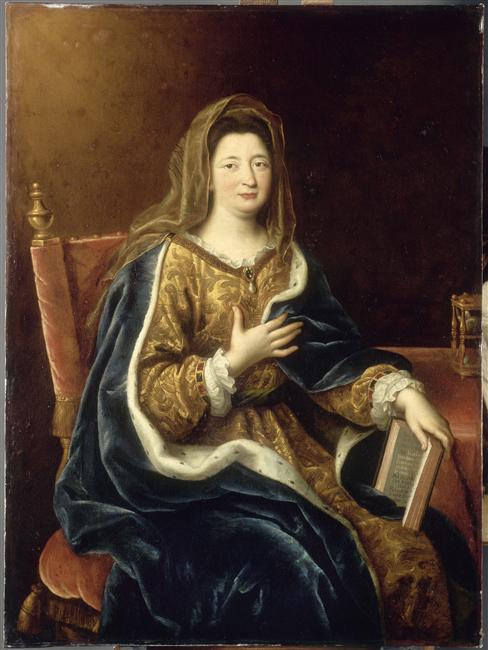
Bontemps had acquired the reputation to try to be as close as possible to his master in all things, a secret second marriage is not too unlikely then. After all, it was Alexandre who organised the secret marriage Louis XIV and Madame de Maintenon. He was one of only a handful people to know of it.
According to some, there was always something slightly mysterious about Alexandre Bontemps. One got the idea that he might be up to something, especially when simple black carriages without any sort of coat of arms or label on them rolled over the courtyard of Versailles, but it was impossible to find out what exactly was happening. He was very good at his job.
Bontemps used his control of the Swiss Guard to place them at strategious places around the Palace, in order to observe everything that could be possibly be of interest to Louis XIV. Who attended church and who not, who talked with whom, who may be plotting with whom, who goes where, who avoids certain people or places. As Governor of the city of Versailles, Alexandre did the very same there too.
One of the last honours bestowed to him was the Governorship of Rennes in 1693. A few years later, on January 13 in 1701, Alexandre suffered a stroke while performing his many duties. He died a few days later on January 17 in Versailles. His death was regretted by many, especially Louis XIV.
During his time in service of Louis XIV, Alexandre Bontemps held the offices of Head Valet to the King from 1659 on, Counselor of the King, Governor of Rennes, Governor of Versailles, including the city, the château, its park, and everything surrounding it, Governor of Marly, Head of the Household of the Dauphine in 1679 and Colonel-General of the Swiss and Grisons. Alexandre was also a Knight and Vicar of the Order of Saint Lazarre.
Alexandre was the second of five Bontemps’ that held the office of Premier valet de la Chambre du Roi in uninterrupted succession between 1643 and 1766, as a early death and no Bomtemps successor broke the line.

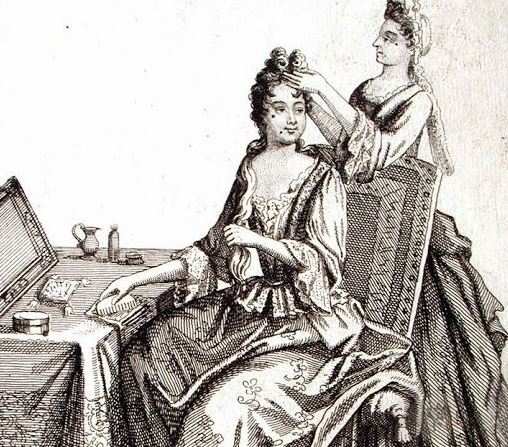
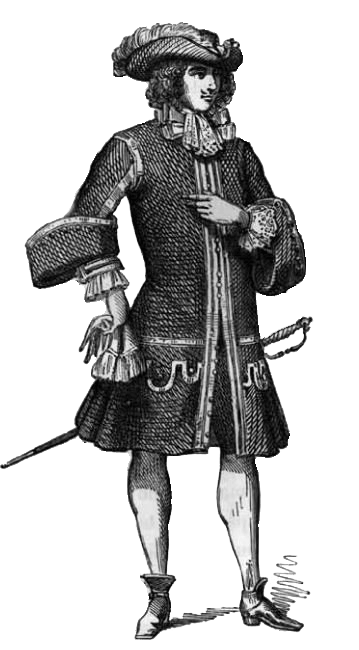
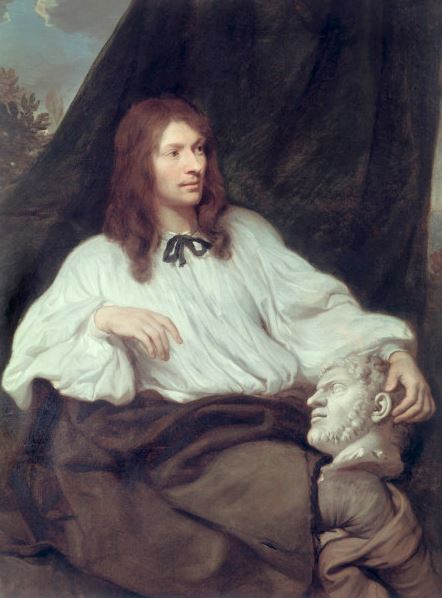
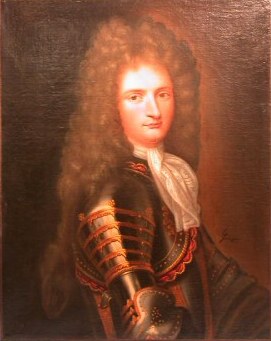
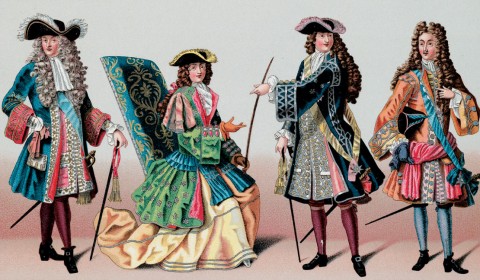
One Comment
Bryant
Very much enjoy your website. Look forward to added history and stories. My question is do you know where the final resting place of Alexandre Bontemps is and is there anymore info on his life serving Louis XIV. And is the medical journal of Louis XIV in english in print and available for purchase anywhere. Thank you